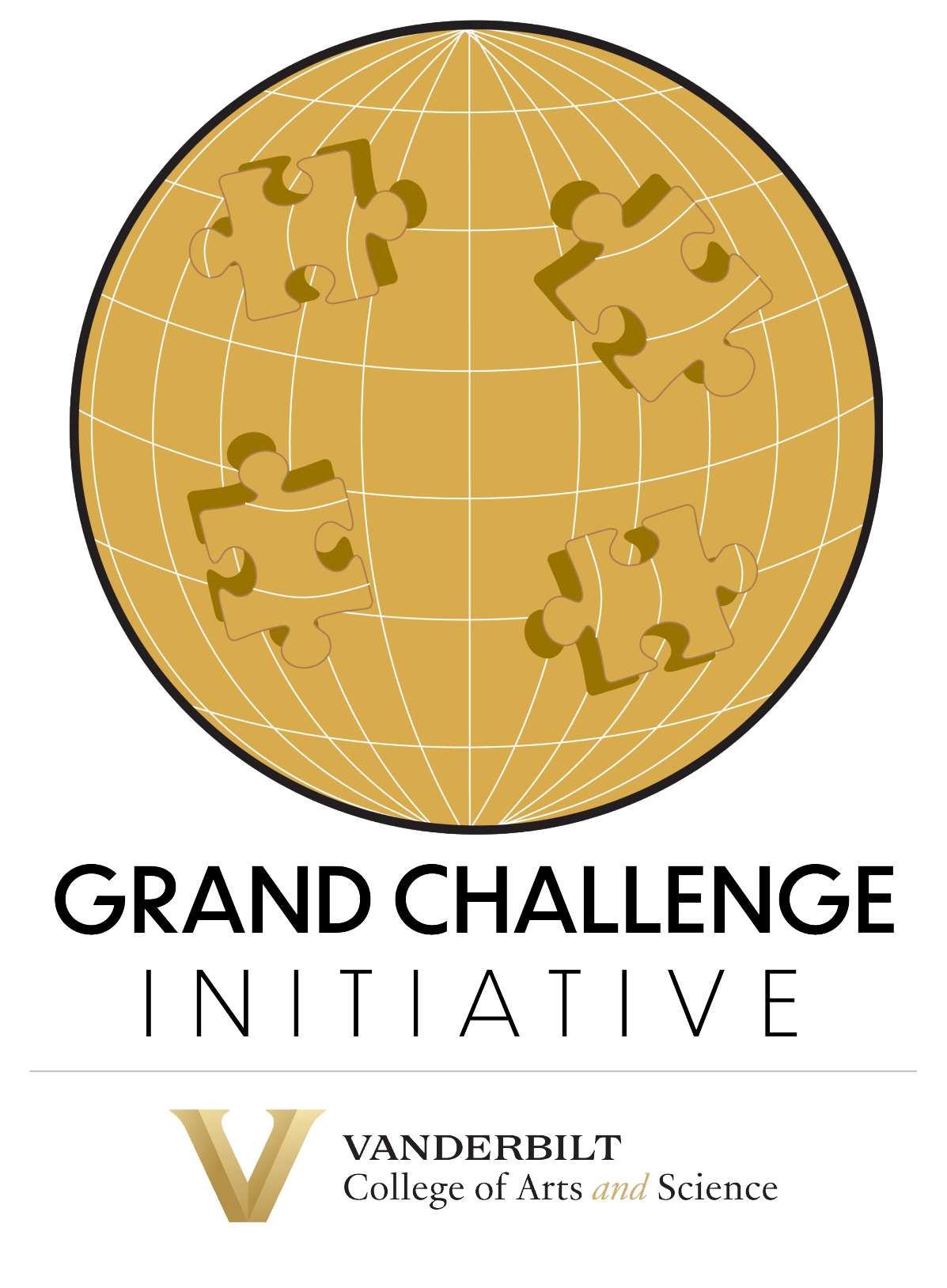Grand Challenge Initiative
 The art + science of solving pressing and enduring problems.
The art + science of solving pressing and enduring problems.
The Grand Challenge Initiative is a unique, faculty-led effort to identify and tackle some of the biggest and most complex challenges facing society today. A&S faculty select a topic and submit a proposal describing how they plan to apply cutting-edge and collaborative research to address it.
Our faculty are uniquely positioned to lead this initiative because of their academic diversity, vast range of expertise and knowledge, and commitment to interdisciplinary collaboration. With 34 departments and more than 600 faculty across the humanities, social sciences, and natural sciences, we are able to find effective solutions to pressing, complex challenges by examining them from multiple angles.
By engaging faculty from across the college, A&S can identify its strengths and areas of focus for years to come. A Faculty Committee selected the first round of projects in spring 2020 and the researchers have received funding to begin their work. Every two years, new projects will be selected, added to the roster, and provided funding for research. See past projects.
Donors interested in supporting the Grand Challenge Initiative should contact rachel.wierenga@vanderbilt.edu.
Current Projects
- Artificial Intelligence
- Borders of Citizenship
- Cities
- Racial Justice
- Science Communication Media Collaborative
Artificial Intelligence
Artificial intelligence has an increasingly significant impact on our lives – from medicine to transportation to privacy to the economy – and we are still in the early stages of understanding how to manage and responsibly use this transformative technology. This project fosters critical conversations among scholars in the humanities, social sciences, natural sciences, and engineering to examine AI’s broad societal and human implications.
Lead researchers: Michael Bess, Chancellor's Professor of History, professor of European studies; Ole Molvig, assistant professor of history and cinema and media arts
Steering committee: Thomas Palmeri (Psychology), Maithilee Kunda (Computer Science), Douglas Fisher (Computer Science)
Borders of Citizenship
Today’s global mass migration urges us to rethink historical understandings of the concepts of borders, citizenship and national belonging. This project will tackle intertwined and complex questions around the sources of migration, how borders have been conceived and reconceived, what makes a citizen, and what it means to belong in the contemporary world. These questions will be explored through topics such as nationalism and statelessness; refugees, asylum, and rights; immigration and citizenship; race, religion, and ethnicity; democracy and demography; and cultural collision and collaboration.
Lead researchers: Edward Wright-Rios, Mellon Foundation Chair in the Humanities and professor of history; Jake Watson, post doctoral fellow in sociology
Representative collaborators: Sarah Igo (History); Alex Jacobs (American Studies); Lutz Koepnick (German, Russian and East European Studies); Emily Ritter (Political Science); Allison Schachter (Jewish Studies); Paul Stob (Communication Studies); Gabriel Torres Cólon (Anthropology); Edward Wright-Ríos (History)
Cities
Urbanization is a global phenomenon with deep roots and wide-ranging, contemporary effects. Today, the world’s population resides mainly within metropolitan areas. Cities have grown at unprecedented velocities, resulting in expansive urban environments, intense climate-induced crises, and deepening economic inequalities. Nashville is a prime example, as the city faces unparalleled challenges caused by rapid urbanization. The Cities GCI seeks to understand how Vanderbilt can best support the study of cities regionally, globally, and locally, past and present, and help to address the needs of those cities today.
Steering committee: Julie Gamble (Gender and Sexuality Studies), Claire Sisco King (Communication Studies and Cinema and Media Arts), Bill Purcell (Public Policy Studies), Angela Sutton (Communication of Science and Technology), Jessica Trounstine (Political Science), Matthew Worsnick (History of Art and Architecture)
Representative collaborators: Peter Chesney (History of Art and Architecture), Lee Ann Custer (History of Art and Architecture)
Racial Justice
The legacies of racial slavery and the global upheavals that coalesce around it connect the modern world and its institutions. This project, focusing broadly on themes of creativity, self-making, and the pursuit of justice, convenes scholars across the humanities and social sciences.
Lead researcher: Anthony Reed, Professor of English and Norman L. and Roselea J. Goldberg Professor of Fine Arts
Steering committee: Brandon Byrd (History), Shatema Threadcraft (Gender and Sexuality Studies), Kimberly McKinson (Anthropology)
Science Communication Media Collaborative
We are living with the consequences of science communication failures. The pandemic, climate change, vaccinations, GMOs, antimicrobial resistance, poisoned water, masks, no masks, alternative facts, no facts…there is no greater challenge facing the scientific community today than effectively communicating and advocating for the discoveries of science. The consequences of not meeting this challenge are devastating: a permanently changed environment, outbreaks of preventable disease, superbugs, unclean water, and food insecurity. Yet, scientists can be stumped by the most basics forms of communication. For too long, the image of the singular, crazed, white man unlocking the mysteries of the universe has defined scientists; scientists have depended on the public’s respect and trust of their institutions; and scientists have spent their time communicating to each other in the rarefied air of conferences and proceedings. The result is a disconnect between the public and the value of science. The Science Communication Media Collaborative establishes new dialogues that address critical issues facing the world by bringing together inspired faculty, students, and the community to strike up conversations. The goal is to push science communication across a variety of media/forms to establish factual beachheads in the wealth of information available to the public.
Lead researcher: David Wright, Stevenson Chair of Chemistry, director of the Program in Communication of Science and Technology
Steering committee: Jay Clayton (English), Leah Lowe (Theatre, Curb Center), Shellie Richards (Communication of Science and Technology), Kendra Oliver (Pharmacology, ArtLAB)
Representative collaborators: Jad Abumrad (Communication of Science and Technology), Jonathan Waters (Cinema & Media Arts), Steven Wernke (Anthropology), Natalie Robbins (Vanderbilt Initiative for Interdisciplinary Geospatial Research)

